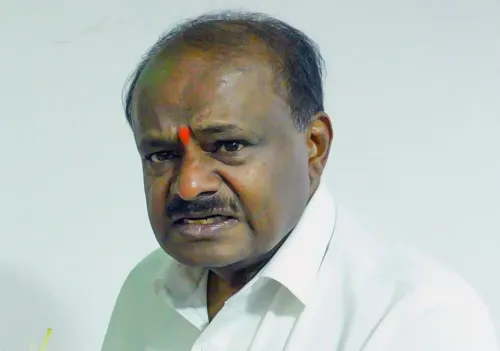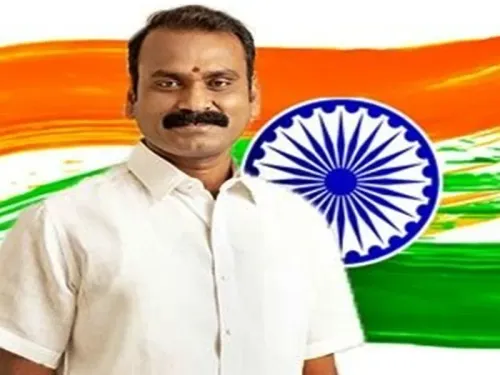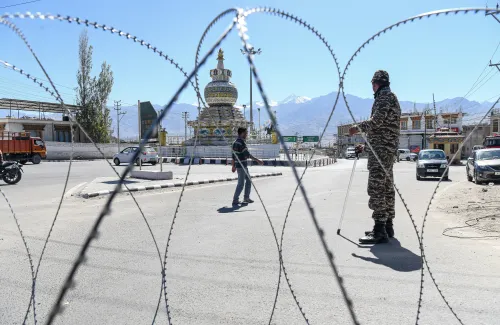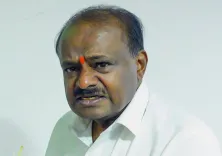Is ECI Following BJP's Playbook? Siddaramaiah Claims
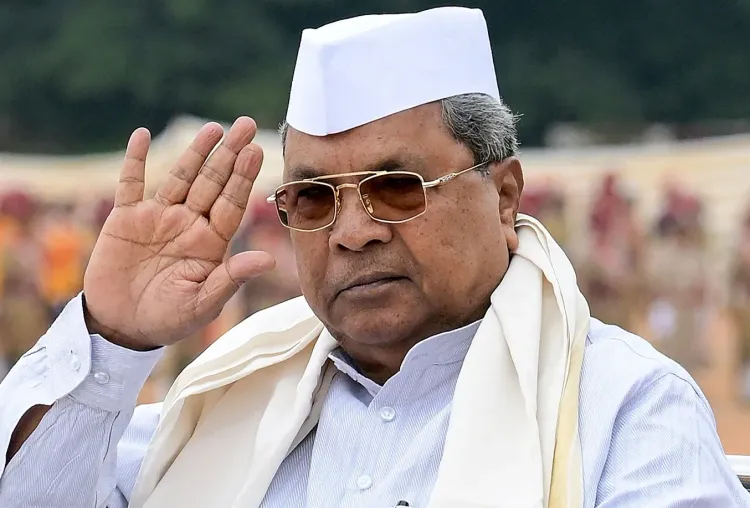
Synopsis
Key Takeaways
- Karnataka CM Siddaramaiah accuses the ECI of bias towards the BJP.
- Concerns raised about fake and duplicate voters.
- Calls for accountability from the ECI regarding electoral integrity.
- The importance of transparency in maintaining democracy.
- The ECI's credibility is under scrutiny as questions remain unanswered.
Bengaluru, Aug 18 (NationPress) In response to the directive issued by the Election Commission of India (ECI) to the Leader of the Opposition, Rahul Gandhi, requiring him to submit an affidavit within seven days or apologize regarding allegations of vote theft, Karnataka Chief Minister Siddaramaiah asserted on Monday that the ECI appeared to be following the BJP’s narrative.
Taking to social media platform X, CM Siddaramaiah remarked, "The Election Commission of India (ECI) has finally spoken—not out of obligation, but due to pressure from the Congress, the INDIA Alliance, the civil society, and even the Supreme Court. When they decided to speak, their true nature was revealed. Rather than acting as an unbiased arbitrator, the ECI seemed to be echoing the BJP’s narrative. The press conference held yesterday failed to address the questions raised by Rahul Gandhi—it only reinforced existing doubts."
"The ECI’s press conference was delivered with an air of arrogance, as though we should be thankful for its direct communication rather than its previous reliance on anonymous sources.
He emphasized that what was on display was not accountability but an attempt to intimidate and distract.
He highlighted that LoP Rahul Gandhi had pointed out significant discrepancies in the Bengaluru Central Lok Sabha constituency, using data from the ECI itself.
“From this singular instance, it is clear that such discrepancies likely exist in numerous other constituencies as well. Instead of addressing these issues, the ECI resorted to threatening the Opposition. The Chief Election Commissioner demanded affidavits and oaths, as if its own statistics required validation before they could be trusted. This is utterly ridiculous,” he stated.
He argued that a responsible commission would have taken these mismatches seriously, verified them, and explained the findings to the public.
“By refusing to do so, the ECI has only heightened suspicions that it is colluding with the ruling party. When it claimed to be ‘impartial’ towards both ruling and opposition parties, it sounded less like a fact and more like a poor joke,” he continued.
Siddaramaiah stressed that the ECI's dismissal of concerns regarding fake and duplicate voters was equally alarming. It dismissed these issues, claiming that no objections were raised during the 45-day claims period, hence the matter is resolved.
He labeled this as merely an excuse to evade responsibility. The reality is that it took time for the Congress to uncover these irregularities because the ECI made access to data difficult.
"We had to sift through thousands of pages in just one assembly segment of Bengaluru Central to reveal the discrepancies. If this is the scenario in one area, consider the scale nationwide. If irregularities surface post-elections, should the ECI simply disregard them? Its constitutional duty is to uphold the integrity of each vote, not to ignore issues when they become evident later," he asserted.
Siddaramaiah remarked that the justifications provided regarding machine-readable electoral rolls and CCTV footage were even weaker, adding that the ECI claimed searchable rolls could infringe on privacy.
“However, electoral rolls are public records. Political parties are not outsiders—they are integral to the democratic process,” he stated.
He further argued that withholding complete, verifiable data would not safeguard privacy; it would merely obscure errors and fraud.
“And the reasoning concerning privacy in relation to CCTV footage is laughable. CCTV in polling stations exists to guarantee transparency, not secrecy,” he emphasized.
Siddaramaiah concluded that destroying that record after just 45 days does not protect voters; it protects wrongdoing.
“Moreover, the most pressing questions remained unanswered. Why was the Special Intensive Revision (SIR) expedited in Bihar just months before elections and during floods? Why did Maharashtra suddenly see a surge of 7 million voters between the 2024 Lok Sabha and Assembly elections? Why did the Commission oppose Supreme Court directives that could have enhanced transparency and benefitted voters? Why has it failed to act on the evidence presented by Rahul Gandhi? On every significant issue, the ECI chose silence,” he pointed out.
He concluded that democracy relies on trust, and that trust is eroded when the Election Commission evades questions, intimidates the Opposition, and protects those in power.
“The citizens of India can see through this clearly. No press conference or grand speech can obscure the truth,” he remarked.
Siddaramaiah asserted that the ECI's responsibility is to protect every citizen's vote—and until it fulfills that duty with integrity, its credibility will remain in question.

